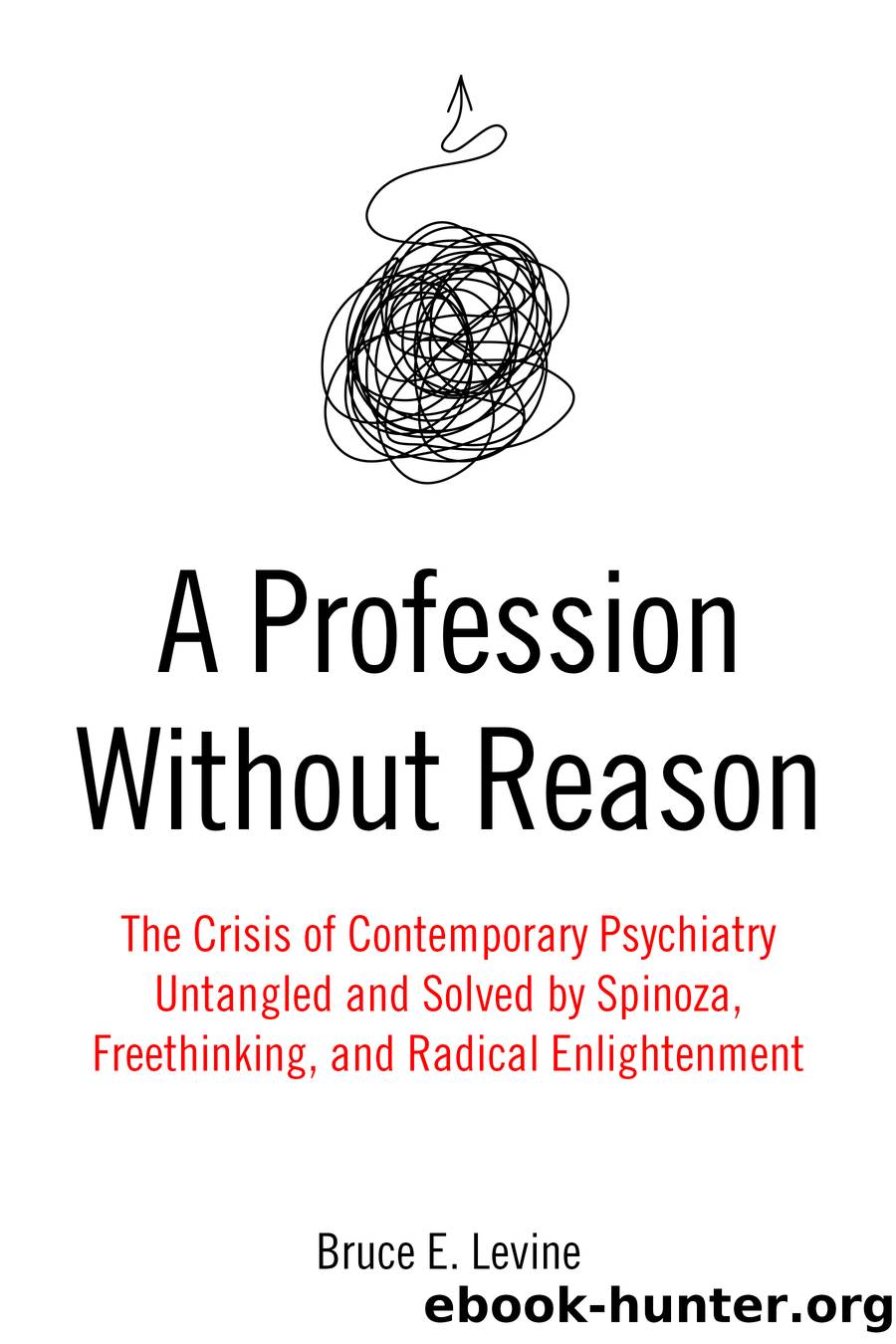A Profession Without Reason by Levine Bruce E.;

Author:Levine, Bruce E.;
Language: eng
Format: epub
Publisher: AK Press
Published: 2022-03-01T00:00:00+00:00
Chapter 13: Madness and Scientia Intuitiva
The terms mental illness and psychosis were not used in Spinozaâs time, however, in the Ethics, Spinoza discusses madness, including hallucinations. He did not romanticize madness, as he saw nothing romantic about the irrational, however, he saw hypocrisies in the determination of madness. Specifically, he observed: âFor sometimes we see men so affected by one object that they think they have it before them even though it is not present. When this happens to a man who is not asleep, we say he is delirious or mad. . . . But when the miser thinks of nothing but gain or money, and the ambitious man of honor, they are not reckoned as mad. . . . But in reality avarice, ambition, lust etc. are kinds of madness, although they are not accounted as diseases.â
Spinozaâs goal was not to explain madness but to provide a rational path to freedom and happiness, however, he provides concepts that are helpful to understanding madness. These concepts include: his recognition that a third kind of knowledge, intuitive knowledge (scientia intuitiva), is superior to reason; his belief in monism as opposed to dualism; and his recognition of the force by which each thing perseveres in existing (conatus). Before explaining the relevance of these concepts to madness, some thoughts on why it is so difficult to understand madness.
One way to gain perspective about just how difficult it is to comprehend all aspects of our humanityâincluding what is now called serious mental illness and psychosisâis to consider our earliest experiences with art. Were there some musicians and painters whom you immediately connected with? However, do you also recall some music and paintings that other people resonated with and you did not, but that which later in life, you were able to acquire a genuine appreciation for?
When I was a teenager, musicians and painters that were overtly emotional, political, and heroic were most easily accessible for me. For example, even when very young, I could resonate with some of Beethovenâs symphonies, though I was not able to connect with much of classical music. As a teenager, folk music was extremely accessible for me, as it spoke directly to my emotions and soothed them, and validated my sense of injustice in the world. Among painters, it was easy at an early age to connect with the overtly emotional Vincent van Gogh and Edvard Munch, and it was easy to understand overtly political paintings such as Pablo Picassoâs Guernica. But I could not connect with much of abstract modern art and, similarly, most of jazz.
With each new understanding of reality, I could connect with that which I could not before. As a teenager, I thought that I had completely grasped oppression and freedom, but it was only a partial understanding, and that is one reason why I could not completely understand Spinoza, whose grasp of freedom was far deeper than mine. So too did jazz musician Miles Davis and abstract expressionist Jackson Pollock have a deeper
Download
This site does not store any files on its server. We only index and link to content provided by other sites. Please contact the content providers to delete copyright contents if any and email us, we'll remove relevant links or contents immediately.
Nudge - Improving Decisions about Health, Wealth, and Happiness by Thaler Sunstein(7706)
The Fire Next Time by James Baldwin(5442)
iGen by Jean M. Twenge(5415)
Adulting by Kelly Williams Brown(4574)
The Sports Rules Book by Human Kinetics(4386)
The Hacking of the American Mind by Robert H. Lustig(4382)
The Ethical Slut by Janet W. Hardy(4251)
Captivate by Vanessa Van Edwards(3839)
Mummy Knew by Lisa James(3691)
In a Sunburned Country by Bill Bryson(3542)
The Worm at the Core by Sheldon Solomon(3487)
Ants Among Elephants by Sujatha Gidla(3467)
The 48 laws of power by Robert Greene & Joost Elffers(3291)
Suicide: A Study in Sociology by Emile Durkheim(3022)
The Slow Fix: Solve Problems, Work Smarter, and Live Better In a World Addicted to Speed by Carl Honore(3009)
The Tipping Point by Malcolm Gladwell(2921)
Humans of New York by Brandon Stanton(2873)
Get What's Yours for Medicare: Maximize Your Coverage, Minimize Your Costs by Philip Moeller(2728)
Handbook of Forensic Sociology and Psychology by Stephen J. Morewitz & Mark L. Goldstein(2705)
